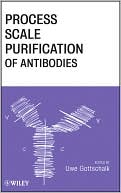Metabolic Engineering: Principles and Methodologies
Metabolic engineering is a new field with applications in the production of chemicals, fuels, materials, pharmaceuticals, and medicine at the genetic level. The field's novelty is in the synthesis of molecular biology techniques and the tools of mathematical analysis, which allow rational selection of targets for genetic modification through measurements and control of metabolic fluxes. The objective is to identify specific genetics or environmental manipulations that result in improvements...
Search in google:
Metabolic engineering is an emerging, interdisciplinary field with applications to the production of chemicals, fuels, materials, and pharmaceuticals. The field's novelty lies in the integration of the techniques of molecular biology with the tools of mathematical analysis, to help elucidate metabolic flux control and rational selection of targets for genetic modification. By providing a rigorous description of cell physiology, metabolic engineering also facilitates functional genomics. Its primary objective is to identify specific genetic and environmental manipulations that lead to enhancement of yield and productivity of biotechnological processes, or the overall improvement of cellular properties.Key elements of the book include pathway integration and consideration of metabolic flux as a fundamental determinant of cell physiology. Metabolic Engineering keeps mathematical complexity to a minimum ,and provides sidebars as additional background on various mathematical operations. Computational tools for pathway analysis are described, and a glossary of biological terms facilitates use of the book by a broad audience of biochemists, molecular biologists, microbiologists, and biochemical/biomedical engineers. Booknews A detailed exploration of the interdisciplinary field of metabolic engineering, including its applications to the production of chemicals, fuels, materials, and pharmaceuticals. The focus is on metabolism, but the concepts of pathway analysis are broad and are generally applicable to other types of reaction sequences, including those involved in protein expression and post-translational modification or in signal transduction pathways. Sidebars address on various mathematical operations as well as computational tools for pathway analysis. For graduate or advanced undergraduate level students, ideally but not necessarily with prior exposure to an introductory biochemistry course. Annotation c. by Book News, Inc., Portland, Or.
PrefaceList of Symbols1The Essence of Metabolic Engineering2Review of Cellular Metabolism3Comprehensive Models for Cellular Reactions4Material Balances and Data Consistency5Regulation of Metabolic Pathways6Examples of Pathway Manipulations: Metabolic Engineering in Practice7Metabolic Pathway Synthesis8Metabolic Flux Analysis9Methods for the Experimental Determination of Metabolic Fluxes by Isotope Labeling10Applications of Metabolic Flux Analysis11Metabolic Control Analysis12Analysis of Structure of Metabolic Networks13Flux Analysis of Metabolic Networks14Thermodynamics of Cellular ProcessesGlossaryIndex
\ BooknewsA detailed exploration of the interdisciplinary field of metabolic engineering, including its applications to the production of chemicals, fuels, materials, and pharmaceuticals. The focus is on metabolism, but the concepts of pathway analysis are broad and are generally applicable to other types of reaction sequences, including those involved in protein expression and post-translational modification or in signal transduction pathways. Sidebars address on various mathematical operations as well as computational tools for pathway analysis. For graduate or advanced undergraduate level students, ideally but not necessarily with prior exposure to an introductory biochemistry course. Annotation c. by Book News, Inc., Portland, Or.\ \








